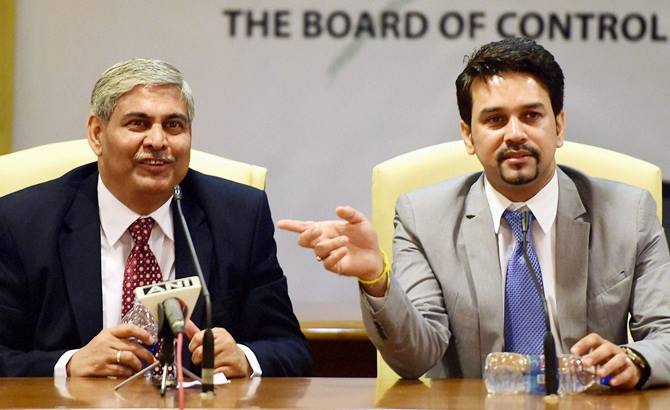What the Supreme Court verdict means for Indian cricket and the BCCI
After months of dilly-dallying with the Lodha committee recommendations, the BCCI suffered a big blow after the Supreme Court accepted the recommendations on Monday (July 18). A six-month deadline has also been set by the apex body to implement these changes in the Board.

The Lodha committee, a three-member panel led by former chief justice of India RM Lodha, had suggested to the BCCI a range of changes in the Board to improve the level of cricket administration in the country. But, the BCCI opted to challenge the recommendations and approached the Supreme Court against the “sweeping reforms”. However, the verdict from the apex court on Monday has marked the end of the current state of affairs in the BCCI. We look at how each of the Lodha committee recommendations will impact the Indian cricket governing body.
1. One person, one post

 © Gettyimages
© GettyimagesIf the recommendation by the Lodha committee is implemented, all the top governing positions in the BCCI will see a change of guard. The recommendation says that office-bearers in the BCCI cannot hold posts simultaneously in the state associations. BCCI President Anurag Thakur, who is also the President of Himachal Pradesh State Cricket Association, will have to step down from his post in the state association to continue in his role as the President of BCCI.
Apart from Thakur, Secretary Ajay Shirke (Maharashtra), Treasurer Aniruddh Chaudhary (Haryana), and Joint Secretary Amitabh Chaudhary (Jharkhand) all currently hold positions in their respective state associations and will have to forego their positions to continue as office bearers in the BCCI.
2. Age cap
BCCI heavyweights Sharad Pawar (Maharashtra), N Srinivasan (Tamil Nadu), and Niranjan Shah (Saurashtra) are few of the people facing the axe as President of their respective state associations once the Lodha committee’s age cap of 70 comes into effect. Sharad Pawar is 75 years old, while Srinivasan and Niranjan Shah are 71 and 72 respectively. Apart from these big names, a host of other office bearers will also find it difficult to continue their positions in the BCCI and state associations.

 © Facebook - Sharad Pawar
© Facebook - Sharad PawarAlso, read : Anil Kumble | Can the legendary bowler transform into a great coach?
3. One state, one vote
To put it simply, six votes will be reduced to two. Currently the state of Maharashtra – Maharashtra, Mumbai, and Vidarbha – and Gujarat - Gujarat, Baroda, and Saurashtra – have three state associations each and have separate votes in the BCCI. Once the ‘one state, one vote’ rule is implemented the power of these states will be reduced in the Indian cricket board. With only one vote per state, the associations will take turns in representing the state on a rotational basis.
In addition to this, Railways and Services, who are currently full members of the BCCI, will be demoted to associate member status once the rule comes into effect.
4. Inclusion of CAG representative
One of the recommendations by the Lodha committee that received
5. No ministers and bureaucrats

 © Facebook - DDCA
© Facebook - DDCAThe Board had pointed out that the presence of ministers in the BCCI had helped them in developing cricket in the country. But, the Board’s close tie-up with the politicians will take a severe hit once the rule comes into the effect. However, on the positive side, it is likely that this will give more chances for sportspersons to come into administration.
Apart from these recommendations, the Supreme Court rejected the proposal to ban advertisements during overs, much to the relief of BCCI. The move would have seen the Board losing a big chunk of their revenue with ad revenue being the major part of the money made by the BCCI and its broadcasters.
The Supreme Court also left the decision on legalising betting and on bringing the BCCI under the ambit of RTI to the Law commission and the government. The apex body refused to take a decision on the issue with both requiring an enactment of a law.
Also, read : Mini-IPL | Will it finally kill the golden goose?

Comments
Sign up or log in to your account to leave comments and reactions
0 Comments